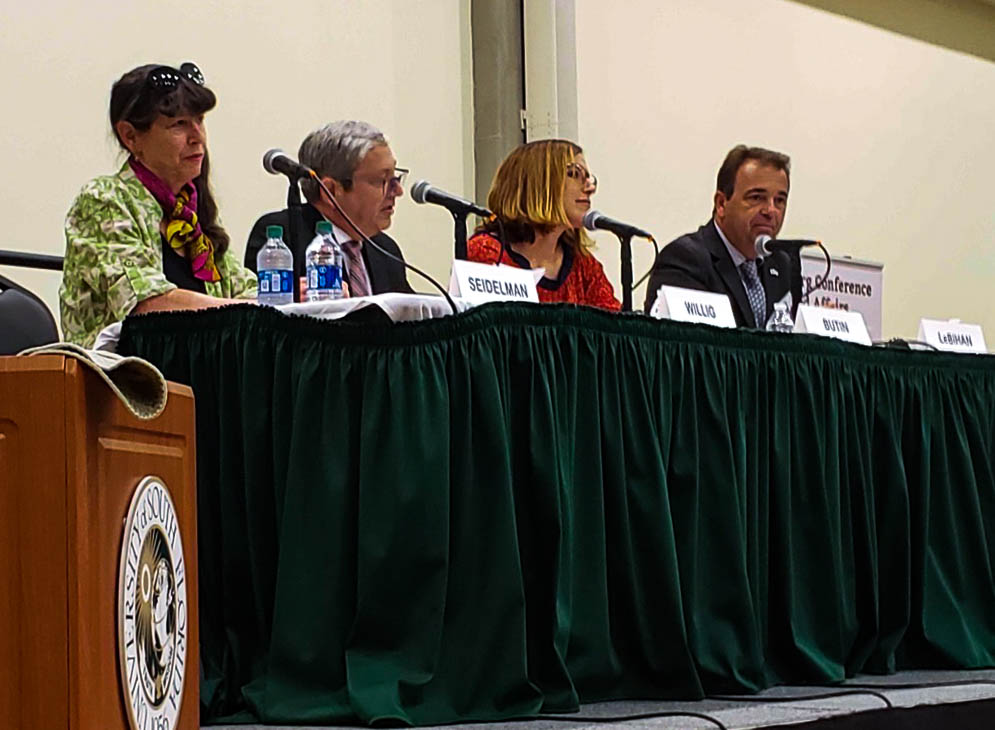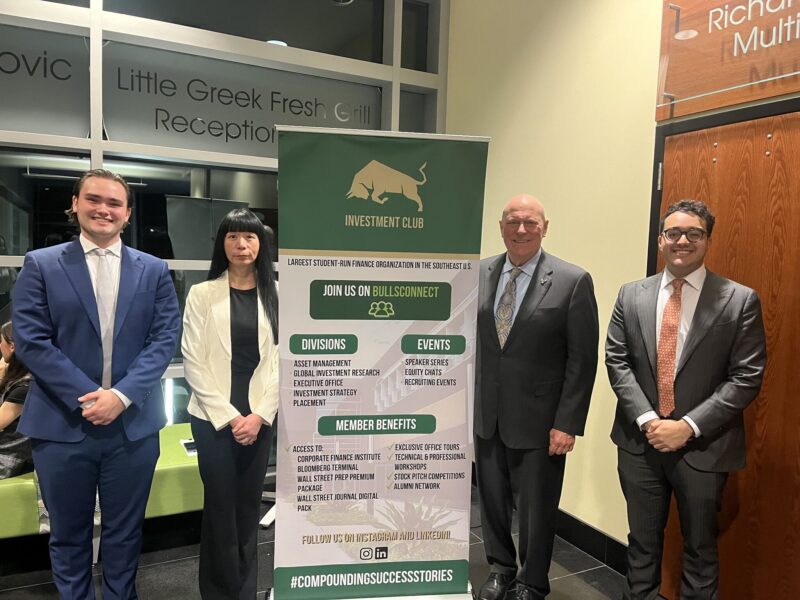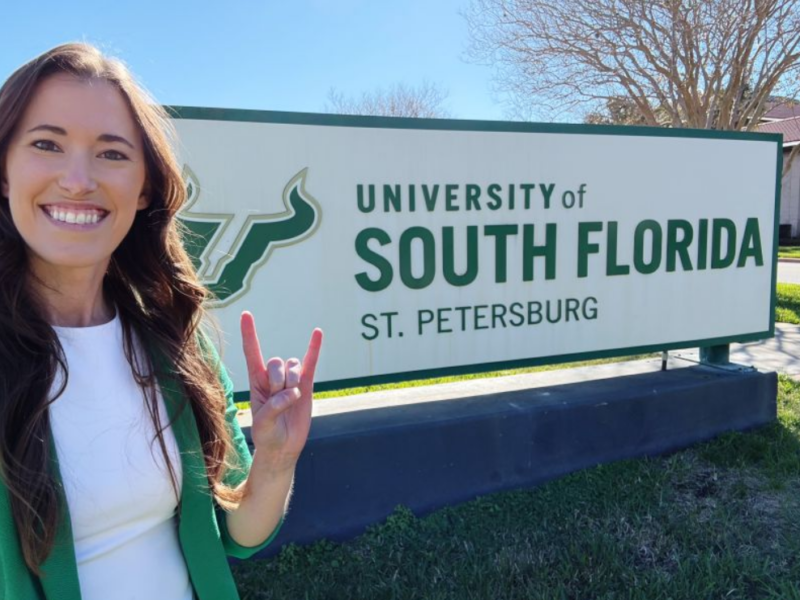Pictured above: Seidelman, Willig, Butin and LeBihan, comprising a fully French-speaking panel, spoke to the St. Petersburg Conference on World Affairs crowd about the virtues (and possible injustices) of being a polyglot.
Story and photo by Dylan Hart
The University Student Center ballroom was filled with je ne sais quoi — and syllables from French, Spanish, Arabic and English speakers echoing off the walls — for a Feb. 21 panel at the St. Petersburg Conference on World Affairs.
Four panelists met to answer one question –– is it virtuous to be a polyglot, or someone who speaks more than one language?
There were no shortage of qualifications on the panel, which included Willy LeBihan, an educator who runs two schools specializing in French and English; Virginie Butin, curriculum director of the De la Fontaine Trilingual Montessori school in Tampa; and Carole Anne Seidelman, an international tour operator and linguist.
“I’m going to say something a little controversial: Bilingual people do feel superior,” said moderator David Willig, summoning an uproar of laughter from the crowd of about 40 attendees. “Is mastery of foreign languages cool or amazing? Clearly it is both. The question is whether it’s virtuous.”
It was easy for the panelists to concur that learning another language is, in fact, virtuous, but for varied reasons. For one, it’s a path to becoming a tougher and more complete person, said LeBihan.
LeBihan, who operates the French American School of Tampa Bay and L’Ecole Française du Maine, is no stranger to that process. He hardly knew any English when he moved to Ireland in college to complete his physics degree.
He remembered introducing himself and nearly quitting after being laughed at for telling his classmates his name in broken English, but he pushed through and eventually got into teaching, which he realized he loved.
“What are the skills kids are going to need in the year 2040? Nobody knows,” he said. “But we think they’re going to need to be tough. Maybe pulling kids out of their comfort zone, exposing them at a very young age to another culture and another language is (virtuous).”
Education was a heavy focus at the panel. Both Butin and LeBihan stressed that it’s a lot easier for people to learn languages early in their childhood. In that respect, the educators agreed that getting a head start in childhood is the best way to learn a language.
Butin said that 80 percent of brain development occurs before the age of 8, and thus the importance of learning a language early is paramount.
“(Language) is education for peace,” Butin said. “Establishing lasting peace is the job of education.”
Undoubtedly, polyglots have a lot of economic value. Most Fortune 500 billionaires speak more than one language, and any meeting between leaders from Iran and China needs at least one person in the room who speaks Chinese and Farsi, Willig said.
For Seidelman, the virtue of foreign language mastery comes from its status as a window to other people’s worlds.
She grew up in Westchester County just outside of New York City and learned French and Spanish in school, eventually taking a serious interest in linguistics while working at a now-defunct gift shop at the United Nations headquarters.
“I could tell what language someone was going to speak because if we saw their shoes, we could tell what country they came from,” she said. “Germans wore sandals and socks, and Italian women usually had to wear these awful heels. So a lot is tied to language.”
At the University of Michigan, Seidelman studied Romance linguistics, the development of the Romance languages from Latin. Now, she spends free time reading newspapers in other languages to get glimpses at French, Spanish or German culture.
“Language is so much more than just words and grammar,” she said. “Why is a French article different from an article in an English newspaper? It’s not just because it’s in French, it’s because it represents a whole culture.”
But the panelists also examined negative views of speaking more than one language, primarily those stemming from xenophobia.
“Some famous people have been ridiculed for their mastery of foreign language,” Willig said. “John Kerry and Mitt Romney both speak French, and that was sometimes viewed as a disadvantage to their broader political ambitions.”
Further, Willig pointed to the Khmer Rouge regime in Cambodia, where speaking a foreign language could “mark you for death” from the regime.
But to Seidelman, the positives of learning a language are well worth it.
“It’s another window on the world,” she said. “If you don’t have another language, you’re shutting out a window. You’re shutting out a whole culture, because a language is not just a language,” but an expression of cultural thought.
“I don’t see how people could not study languages,” Seidelman said.




We really need better language education. We should out children in kindergarten because that’s when it’ll stick easier for them.